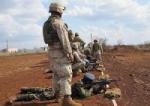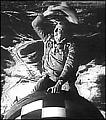There is no easy answer to the question of whether and to what degree external actors should intervene to trigger or force transition in extreme cases of autocratic or failed governance. Often in the zeal to hasten the demise of bad regimes inadequate consideration is given ahead of time to how the international community can best prepare a backward country for effective democratic governance. Burma – a prime case of arrested development brought about by decades of stubborn, isolationist military rule – provides ample illustration of this dilemma. The great hope for instant transition to democracy that was raised by the 1990 parliamentary elections in Burma was dashed almost immediately by the failure of the military regime to seat the elected parliament. Motivated by despair, many governments adopted policies making regime change a
sine qua non for engagement with Burma, hoping this would force the military to follow through on its original promise to return to elected government. Seventeen years later, however, the military remains firmly entrenched in power and the country’s political, economic, and human resources have seriously deteriorated. Even if an elected government could be seated tomorrow, it would find itself bereft of the institutions necessary to deliver stable democratic rule.
Starting from the assumption that some degree of transition is inevitable in the not-toodistant future, this study explores the depth of Burma’s deprivations under military rule, focusing on questions of how to make the country’s political, social, and economic institutions adequate to the task of managing democratic governance. It identifies the international mechanisms available to assist in this task, as well as innate strengths that can still be found in Burma, and it discusses what the limitations on assistance might be under various scenarios for political transition. Concluding that some degree of political transition will have to be underway before it will be possible to deliver effective assistance, the study suggests that the most productive policy approaches will require greater coordination and collaboration with Burma’s Asian neighbors.





 Reply With Quote
Reply With Quote










Bookmarks